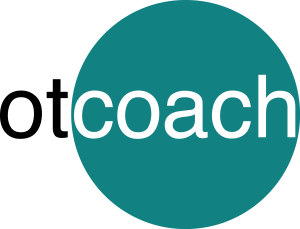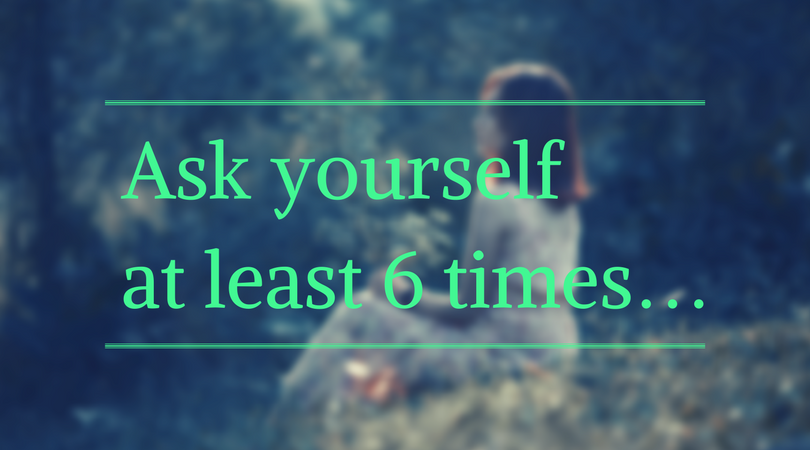Emergent Coaching and a powerful online resource
I am struggling with my painting – again! Whilst my “business” is firing on all cylinders, I have neglected my creative work, something which I seem to do rather too easily. I needed some help, and decided to revisit an online process I used several years ago.
It comes from the Emergent Knowledge field which embraces an iterative process – one where you ask the same question several times over. The website is called www.powersofsix.com and is the work of Philip Harland and Matthew Hudson and is based on the work of David Grove. I will attempt to explain the process which is very simple, but it is best experienced in person. Some of the tools take about 40 minutes, so make sure you have some time, space and quiet.
You start by identifying an issue. What would you like to focus on this session? For me this was about “not painting again”.
You are then asked the next question 6 times: “ and what do you know about that”
Then “And what do you know now?”
You answer and then are asked the next question 6 times “And what does that know about you?”
Then “And what do you know now?”
Then the next question is asked 6 times “And is there anything else about that?”
Then “And what do you know now?”
Then the next question is asked 6 times “And where could that come from?”
Then “And what do you know now?”
Then the next question is asked 6 times “And then what can happen?”
Then “And what do you know now?”
Then the next question is asked 6 times “And is there anything else about that?”
Then “And what do you know now?”
The final question is asked :
What is the difference between what you knew at the beginning and what you know now?
And presents you with your original issue followed by your final insight.
This approach is based partly on research that shows that if we are just asked one question, we will give a very limited reply. If you ask the question another 3 times, you are just giving knowledge and information that you already know. It’s only after 5 times that you start generating new learning… how fascinating is that! The questions are also “clean questions” which keep the coach or therapist, out of the process, not allowing language, perception or interpretation to dirty things!
I have had some training in both Clean Language and Emergent knowledge and know how powerful it is. If you fancy working with me in that way, please get in touch – it will move you in ways you wouldn’t believe!
And if you really want to see my session notes from this online process, I am happy to share, but you will need to email me.
3) Some Thinking Can Seriously Harm Your Health: A Self Coaching Strategy
‘Emancipate yourself from mental slavery; none but ourselves can free our mind.’ Bob Marley
I have recently watched the sumptuous (if slightly too long) “Life of Pi” at the cinema. The vibrancy of the colours and images were wonderful and the tiger was such a compelling animal that I felt I had him walking around the house with me for days after watching the film. If you don’t know the story please look away now as this maybe a ‘spoiler’. The story invites you to consider that we can choose how we think about things. In fact the story gently insists that we choose. The consequences of choices Pi made in his thinking would seem to have saved his life and enabled him to live a sane and fulfilled life in the future.
Some of us have more of a pull towards negative thinking than others. I didn’t know Winnie the Pooh as a child but I now know he has a friend called Eeyore whose cup is always half empty (probably of cold tea!). Eeyore thinks he has such a hard time of it.
Simply put negative thinking can become an unhelpful even harmful habit.
Now I’m not suggesting we become like Pooh’s other friend Tigger and bounce around enthusiastically thinking that everything is wonderful. But I am suggesting that we have a choice in what we engage with in our mind, as, like ripples in a pond, what we think will affect how we feel and what we do or don’t do.
Developing an awareness of our thinking habit takes some effort but it’s not complicated!
Whenever you can, just inwardly notice the thoughts that pop into your mind – do your thoughts stress you or energise you, do they frighten you or calm you, close you down or optimize you?
Here’s where the choice comes in. I’ve heard it helpfully described like this – thoughts are like trains coming into the station of your mind – you choose if you want to get on the train, or if you simply watch it pass through the station and disappear back into the tunnel from whence it came? Cool ‘eh!
Now don’t get me wrong if you have a thought like ‘I must pick the kids up from school’ or ‘I need to check my bank statement’ you need to act on these thoughts no matter how stressful they feel! But when you’ve dealt with the tasks of daily life and you find a moment to relax you have the right to choose not to give head space to any habitual negative thought that randomly gets pulled off the database by your busy mind. Wave that train goodbye, again and again, and as many times as it takes to grow and sustain a new mental habit.
You can choose. Watch the thoughts and choose. The more you do it the more accomplished you will become at it and you will notice negative thinking will reduce. This in turn will reduce the associated negative emotions you experience and how they affect your behaviour.
Try it and let me know. All my best wishes, Janet McClean OT, Coach and Mentor
Ref: The Big Peace by Susy Greaves and A User’s Guide to the Brain by John Ratey


